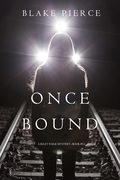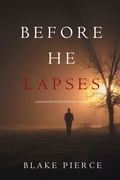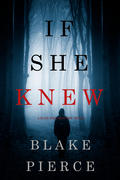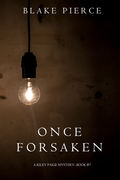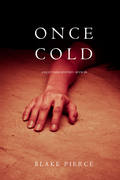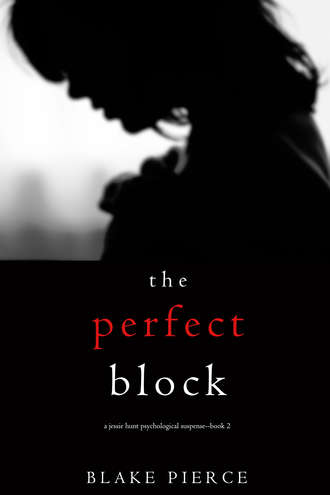
Блейк Пирс
The Perfect Block
Dr. Lemmon stared at her for a few seconds from behind her thick glasses, her eyes boring into her.
“I’ll see what I can do,” she finally said. “Speaking of golden tickets, have you formally accepted the FBI’s National Academy invitation yet?”
“Not yet. I’m still weighing my options.”
“I think you could learn a lot there, Jessie. And it wouldn’t hurt to have it on your résumé when you’re trying to get work out here. I worry that passing on it might be a form of self-sabotage.”
“It’s not that,” Jessie assured her. “I know it’s a great opportunity. I’m just not sure this is the ideal time for me to up and move across the country for almost three months. My whole world is in flux right now.”
She tried to keep the agitation out of her voice but could hear it creeping in. Clearly Dr. Lemmon did too because she shifted gears.
“Okay. Now that we’ve gotten a big picture view of how things are going, I’d like to dig a little deeper on a few subjects. If I recall, your adoptive father came out here recently to help get you squared away. I want to get into how that went momentarily. But first, let’s discuss how you’re recovering physically. I understand you just had your last physical therapy session. How was that?”
The next forty-five minutes made Jessie feel like a tree having its bark peeled back. When it was over, she was happy to leave, even if it meant her next stop was getting checked to reconfirm she could have kids in the future. After nearly an hour of Dr. Lemmon poking and prodding her psyche, she figured getting her body poked and prodded would be a breeze. She was wrong.
*
It wasn’t so much the poking that set her off. It was the aftermath. The appointment itself was pretty uneventful. Jessie’s doctor confirmed that she hadn’t suffered any permanent damage and assured her that she should be able to conceive in the future. She also gave the all-clear to resume sexual activity, a notion that had genuinely not crossed Jessie’s mind since Kyle attacked her. The doctor said that barring something unexpected, she should return for a follow-up in six months.
It was only when she was in the elevator on the way down to the parking garage that she lost it. She wasn’t completely sure why but she felt like she was falling into a dark hole in the ground. She ran to the car and sat in the driver’s seat, letting the heaving sobs wrack her body.
And then, in the middle of the tears, she got it. Something about the finality of the appointment had hit her hard. She didn’t have to come back for six months. It would be a normal visit. The pregnancy stage of her life was, for the foreseeable future, over.
She could almost feel the emotional door slam shut and it was jarring. On top of her marriage ending in the most shocking way possible and learning that the murderous father she thought she’d put in the past was back in her present, the realization that she’d had a living being inside her and now she didn’t was too much to bear.
She peeled out of the parking garage, her vision blurred by tear-stained eyes. She didn’t care. She found herself pressing down hard on the accelerator as she roared south on Robertson. It was early afternoon and there wasn’t much traffic. Still, she weaved wildly in and out of lanes.
Ahead of her, at a stoplight, she saw a large moving truck. She hit the gas hard and felt her neck snap back as she accelerated. The speed limit was thirty-five, but she was at forty-five, fifty-five, passing sixty. She was sure that if she hit that truck hard enough, all her pain would vanish in an instant.
She glanced to her left and as she whizzed by, she saw a mother walking along the sidewalk with her toddler son. The thought of that little boy being witness to a mass of crumpled metal, blistering fire, and charred remains snapped her out of it.
Jessie hit the brakes hard, squealing to a stop only feet from the back of the truck. She pulled into the gas station parking lot to her right, parked, and turned off the car. She was breathing heavily and adrenaline coursed through her body, making her fingers and toes tingle to the point of discomfort.
After about five minutes sitting there motionless with her eyes closed, her chest stopped heaving and her breathing returned to normal. She heard a buzzing and opened her eyes. It was her phone. The caller ID said it was Detective Ryan Hernandez of the LAPD. He’d spoken to her criminology class last semester, where she’d impressed him with how she’d solved a sample case he presented to the class. He’d also visited her in the hospital after Kyle tried to kill her.
“Hello, hello,” Jessie said out loud to herself, making sure her voice sounded normal. Close enough. She answered the call.
“This is Jessie.”
“Hi, Ms. Hunt. This is Detective Ryan Hernandez calling. Do you remember me?”
“Of course,” she said, pleased that she sounded like her usual self. “What’s up?”
“I know you graduated recently,” he said, his voice sounding more hesitant than she remembered. “Have you secured a position yet?”
“Not yet,” she answered. “I’m weighing my options right now.”
“In that case, I’d like to talk to you about a job.”
CHAPTER FOUR
An hour later, Jessie was sitting in the reception area of the Central Community Police Station of the Los Angeles Police Department, or as it was more commonly called, Downtown Division, where she was waiting for Detective Hernandez to come out to meet her. She expressly refused to think about what happened with the near crash. It was too much to process at the moment. Instead, she focused on what was about to happen.
Hernandez had been cagey on the call, telling her he couldn’t go into detail—just that a junior position was opening up and he’d thought of her. He asked her to come in to discuss it in person as he wanted to gauge her interest before mentioning her to the higher-ups.
While Jessie waited, she tried to recall what she knew about Hernandez. She had met him earlier that fall when he’d visited her master’s program forensic psychology class to discuss the practical applications of profiling. It turned out that when he was a beat cop, he’d been instrumental in catching Bolton Crutchfield.
In the class, he’d presented an elaborate murder case to the students and asked if anyone could determine the perpetrator and the motive. Only Jessie had figured it out. In fact, Hernandez had said she was only the second student ever to solve the case.
The next time she saw him was in the hospital when she was recovering from Kyle’s attack. She was still a bit drugged up at the time, so her memory was a little hazy.
He had only been there in the first place because she’d called him, suspicious about Kyle’s background before she’d met him at age eighteen, hoping to get any leads he could offer. She’d left a voicemail with the detective and when he couldn’t reach her after multiple calls back—primarily because her husband had tied her up in their house—he’d tracked her cell and found she was in the hospital.
When he visited, he’d been helpful, walking her through the state of the pending case against Kyle. But he’d also quite clearly been suspicious (with good reason) that Jessie hadn’t done all she could to come clean after Kyle killed Natalia Urgova.
It was true. After Kyle had persuaded Jessie that she had killed Natalia herself in a drunken rage that she couldn’t remember, he’d offered to cover up the crime by dumping the woman’s body at sea. Despite her misgivings at the time, Jessie hadn’t been forceful about going to the police to confess. It was something she regretted to this day.
Hernandez had sussed that out but as far as she knew, never said anything about it to anyone after that. Some small part of her feared that was the real reason he’d called her here today and that the job was just a pretense to get her in the station. She figured that if he took her to an interrogation room, she’d know which way things were headed.
After a few minutes, he came out to greet her. He was much as she remembered him, about thirty, well-built but not overly imposing. At about six feet tall and a little under 200 pounds, he was clearly in good shape. It was only as he got closer that she remembered how ripped he was.
He had short black hair, brown eyes, and a wide, warm smile that probably even made suspects feel at ease. She wondered if he cultivated it for that very reason. She saw the wedding band on his left hand and remembered that he was married but had no kids.
“Thanks for coming in, Ms. Hunt,” he said, extending his hand.
“Please call me Jessie,” she said.
“Okay, Jessie. Let’s go to my desk and I’ll fill you in on what I had in mind.”
Jessie felt a stronger than expected surge of relief when he didn’t suggest the interrogation room but managed to avoid making it obvious. As she followed him back to the bullpen, he talked softly.
“I’ve been keeping up with your case,” he admitted. “Or more accurately, your husband’s case.”
“Soon to be ex,” she noted.
“Right. I heard that too. No plans to stick it out with the guy who tried to frame you for murder and then kill you, huh? No loyalty these days.”
He grinned to let her know he was kidding. Jessie couldn’t help but be impressed by a guy willing to make a crack about a murder to the person who was almost murdered.
“The guilt is overwhelming,” she said, playing along.
“I’ll bet. I’ve got to say, it’s not looking good for your soon-to-be former hubby. Even if prosecutors don’t seek the death penalty, I doubt he’s ever getting out.”
“From your lips…” Jessie muttered, not needing to finish the sentence.
“Let’s move to a happier subject, shall we?” Hernandez suggested. “As you may or may not recall from my visit to your classroom, I work for a special unit in Robbery-Homicide. It’s called Homicide Special Section, or HSS for short. We specialize in high-profile cases—the kinds that generate lots of media interest or public scrutiny. That might include arsons, murders with multiple victims, murders of notable individuals, and of course, serial killers.”
“Like Bolton Crutchfield, the guy you helped capture.”
“Exactly,” he said. “Our unit also employs profilers. They’re not exclusive to us. The whole department has access to them but we have priority. You may have heard of our senior profiler, Garland Moses.”
Jessie nodded. Moses was a legend in the profiling community. A former FBI agent, he’d relocated to the West Coast to retire in the late 1990s after spending decades bouncing around the country hunting serial killers. But the LAPD had made him an offer and he agreed to work as a consultant. He was paid by the department but wasn’t an official employee, so he could come and go as he chose.
He was over seventy years old now but still showed up to work just about every day. And at least three or four times a year, Jessie read a story of him cracking a case no one else could nail down. He supposedly had an office on the second floor of this building in what was said to be a converted broom closet.
“Am I going to meet him?” Jessie asked, trying to keep her enthusiasm in check.
“Not today,” Hernandez said. “Maybe if you take the job and have settled in for a while, I’ll introduce you. He’s a little on the crusty side.”
Jessie knew Hernandez was being diplomatic. Garland Moses had a reputation for being a taciturn, short-tempered asshole. If he wasn’t great at catching murderers, he’d probably be unemployable.
“So Moses is kind of the department’s profiler emeritus,” Hernandez continued. “He only shows his face for really big cases. The department has a number of other staff and freelance profilers it uses for less celebrated cases. Unfortunately, our junior profiler, Josh Caster, tendered his resignation yesterday.”
“Why?”
“Officially?” Hernandez said. “He wanted to relocate to a more family-friendly area. He has a wife and two kids he never got to see. So he accepted a position up in Santa Barbara.”
“And unofficially?”
“He couldn’t hack it anymore. He worked robbery-homicide a half dozen years, went to the FBI’s training program, came back all gung ho and really pushed hard as a profiler for two years after that. Then he just hit a wall.”
“What do you mean?” Jessie asked.
“This is an ugly business, Jessie. I feel like I don’t need to tell you that, with what happened with your husband. But it’s one thing to have a brush with violence or death. It’s another to face it every day, to see the foul things human beings can do to each other. It’s hard to keep your humanity under the onslaught of that stuff. It grinds you down. If you don’t have somewhere to put it at the end of the day, it can really mess you up. That’s something to think about as you consider my proposal.”
Jessie decided now wasn’t the time to tell Detective Hernandez that her experience with Kyle wasn’t the first time she’d seen death close up. She wasn’t sure if watching her father murder multiple people as a child, including her own mother, might hurt her job prospects.
“What exactly is your proposal?” she asked, steering clear of the topic entirely.
They had reached Hernandez’s desk. He motioned for her to sit down across from him as he continued.
“Replacing Caster, at least on an interim basis. The department isn’t ready to hire a new full-time profiler just yet. They put a lot of resources into Caster and they feel burned. They want to do a big candidate search before hiring his permanent replacement. In the meantime, they’re looking for someone junior, who won’t mind not being a full-time hire and won’t mind being underpaid.”
“That’s sure to reel in top applicants,” Jessie said.
“Agreed. That’s my fear—that in the interest of keeping costs low, they’ll go with someone who doesn’t have the chops. Me? I’d rather try someone who might be green but has talent rather than a hack who can’t profile worth a damn.”
“You think I have talent?” Jessie asked, hoping she didn’t sound like she was fishing for a compliment.
“I think you have potential. You showed that in the classroom scenario. I respect your professor in the class, Warren Hosta. And he tells me you have real talent. He wouldn’t get specific but he indicated that you’d been granted permission to interview a high-value inmate and that you’d established a rapport that might prove fruitful in the future. The fact that he couldn’t read me in on something a fresh-scrubbed master’s graduate is doing suggests you’re not as untested as you seem. Plus, you managed to uncover your husband’s elaborate murder plot and not get killed in the process. That’s nothing to sneeze at. I also know you were accepted into the FBI’s National Academy without any law enforcement experience. That almost never happens. So I’m willing to take a flyer on you and throw your name into the mix. Assuming you’re interested. Are you interested?”
CHAPTER FIVE
“So you’re not doing the FBI thing?” Lacy asked incredulously as she took another sip of wine.
They were sitting on the couch, halfway through a bottle of red and devouring the Chinese food that had just been delivered. It was after 8 p.m. and Jessie was exhausted from the longest day she could remember in months.
“I’m still going to do it, just not now. They gave me a one-time deferment. I can join with another Academy class, as long as I attend at some time in the next six months. Otherwise I have to reapply. Since I was lucky to get in this time, that pretty much guarantees I’ll be going soon.”
“And you’re bailing to do grunt work for the LAPD?” Lacy asked, disbelieving.
“Once again, not bailing,” Jessie pointed out, taking a big glug from her own glass, “just delaying. I was already on the fence with everything going on with the house sale and my physical recovery. This was just the clincher. Besides, it sounds cool!”
“No it doesn’t,” Lacy said. “It sounds totally boring. Even your detective buddy said you’d be doing routine tasks and handling the low-profile cases no one else wanted to take on.”
“At first. But once I’ve got a bit of experience I’m sure they’ll throw me on something more interesting. This is Los Angeles, Lace. They’re not going to be able to keep the crazy away from me.”
*
Two weeks later, as the patrol car dropped Jessie off a block from the crime scene, she thanked the officers and headed for the alley where she saw police tape already up. As she crossed the street, avoiding the drivers who seemed more intent on hitting than avoiding her, it occurred to her that this would be her first murder case.
Looking back on her brief time at Central Station, she realized that she’d been wrong to think they couldn’t keep the crazy away from her. Somehow, at least so far, they had. In fact, most of her time these days was spent in the station, going through open cases to make sure the paperwork Josh Caster had filed before he left was up to date. It was drudgery.
It didn’t help that Central Station felt like a busy bus station. The main bullpen area was massive. People swarmed around her all the time and she was never quite sure if they were staff, civilians, or suspects. She had to repeatedly move desks as profilers without the “interim” tag used their seniority to lay claim to work stations they preferred. No matter where she ended up, Jessie always seemed to be situated right below a flickering fluorescent light.
But not today. Stepping into the alley just off East 4th Street, she saw Detective Hernandez at the far end and hoped this case would be different from the others she’d been assigned so far. For each of those, she’d shadowed detectives but wasn’t asked for her opinion. There wasn’t much need for it anyway.
Of the three field cases she’d shadowed, two were robberies and one was arson. In each instance, the suspect confessed within minutes of arrest, once without even being questioned. The detective had to Mirandize the guy and get him to re-confess.
But today might finally be different. It was the Monday just before Christmas, and Jessie hoped the spirit of the season might make Hernandez more generous than some of his colleagues. She joined him and his partner for that day, a bespectacled forty-something guy named Callum Reid, as they investigated the death of a junkie found at the end of the alley.
He still had a needle sticking out of his left arm and the uniformed officer had only called in the detectives as a formality. As Hernandez and Reid talked to the officer, Jessie ducked under the police tape and approached the body, making sure not to step anywhere sensitive.
She looked down at the young man, who didn’t look any older than her. He was African-American, with a high fade haircut. Even lying down and shoeless, she could tell he was tall. Something about him felt familiar.
“Should I know who this guy is?” she called out to Hernandez. “I feel like I’ve seen him somewhere before.”
“Probably,” Hernandez shouted back. “You went to USC, right?”
“Yeah,” she said.
“He likely overlapped with you for a year or two. His name was Lionel Little. He played basketball there for a couple of years before going pro.”
“Okay, I think I remember him,” Jessie said.
“He had a gorgeous left-handed finger roll shot,” Detective Reid recalled. “Reminded me a little of George Gervin. He was a highly touted rookie but he ended up washing out after a few years. He couldn’t play defense and he didn’t know how to handle all the money or the NBA lifestyle. He only lasted three seasons before he was out of the league entirely. The drugs pretty much took over at that point. Somewhere along the line, he ended up on the streets.”
“I’d see him around from time to time,” Hernandez added. “He was a sweet kid—never cited him for more than loitering or public urination.”
Jessie leaned over and looked more closely at Lionel. She tried to imagine herself in his position, a lost kid, addicted but not much trouble, wandering the back alleys of downtown L.A. for the last few years. Somehow he’d managed to maintain his habit without overdosing or ending up in jail. And yet here he was, lying in an alley, needle in his arm, shoeless. Something didn’t feel right.
She knelt down to get a closer look at where the needle jutted out from his skin. It was jammed in deep on his otherwise smooth skin.
His smooth skin…
“Detective Reid, you said Lionel had a nice left-handed finger roll, right?”
“Thing of beauty,” he replied appreciatively.
“So can I assume he was left-handed?”
“Oh yeah, he was totally left-hand dominant. He had real trouble going to his right. Defenders would overplay him to that side and completely shut him down. It was another reason he never made it in the pros.”
“That’s weird,” she muttered.
“What is it?” Hernandez asked.
“It’s just…can you guys come over here? There’s something that doesn’t make sense about this crime scene to me.”
The detectives walked over and stopped right behind where she was kneeling. She pointed at Lionel’s left arm.
“That needle looks like it’s halfway through his arm and it’s not anywhere near a vein.”
“Maybe he had bad aim?” Reid suggested.
“Maybe,” Jessie conceded. “But look at his right arm. There’s a precise line of tracks that all follow along his veins. It’s pretty meticulous for a drug addict. And it makes sense, because he was a lefty. Of course he’d inject his right arm with his dominant hand.”
“That does make sense,” Hernandez agreed.
“So then I thought maybe he was just sloppier when he used his right,” Jessie continued. “Like you said, Detective Reid, maybe he just had bad aim.”
“Exactly,” Reid said.
“But look,” Jessie said pointing at the arm. “Other than the spot with the needle in it right now, his left arm is smooth—no track marks at all.”
“What does that tell you?” Hernandez asked, starting to see where she was going.
“It tells me that he didn’t shoot up in his left arm, pretty much ever. From what I can tell, this isn’t the kind of guy who would let someone else shoot him up in that arm either. He had a system. He was very methodical. Look at the back of his right hand. He’s got marks there too. He’d rather shoot up his hand than trust someone else. I bet if we took off his socks, we’d find track marks between the toes on his right foot too.”
“So you’re suggesting he didn’t overdose?” Reid asked skeptically.
“I’m suggesting that someone wants to make it look like he OD’d but did a sloppy job and just jammed the needle somewhere in his left arm, the one right-handed people would typically use.”
“Why?” Reid asked.
“Well,” Jessie said cautiously, “I started thinking about the fact that his shoes are missing. None of his other clothes are. I’m wondering if, him having been a former pro player, his shoes were expensive. Don’t some of them go for hundreds of dollars?”
“They do,” Hernandez answered, sounding excited. “Actually, when he first joined the league and everyone thought he was going to be a big deal, he signed a shoe contract with an upstart company called Hardwood. Most guys signed with one of the big sneaker companies—Nike, Adidas, Reebok. But Lionel went with these guys. They were viewed as edgy. Maybe too edgy because they went out of business a few years ago.”
“So then the sneakers wouldn’t be that valuable,” Reid said.
“Actually the opposite is true,” Hernandez corrected. “Because they went bankrupt, the shoes became a hot commodity. There are only so many in circulation, so each one is quite valuable with collectors. As a spokesman for the company, Lionel probably got a truckload of them when he first signed on. And I’d be willing to bet that’s what he had on tonight.”
“So,” Jessie picked up, “someone saw him wearing the shoes. Maybe they were desperate for cash. Lionel’s not viewed as a tough guy. He’s an easy mark. So this person takes Lionel down, steals the shoes, and shoves a needle in his arm, hoping we’d just mark it down as another overdose.”
“It’s not a crazy theory,” Hernandez said. “Let’s see if we can get a search going for someone in the area wearing a pair of Hardwoods.”
“If Lionel didn’t overdose, then how did the perp kill him?” Reid mused. “I don’t see any blood.”
“I think that’s a great question…for the medical examiner,” Hernandez said, grinning as he stepped back to the other side of the police tape. “Why don’t we call one in and get some lunch?”
“I’ve got to run to the bank,” Reid said. “Maybe I’ll just meet you back at the station.”
“Okay. It looks like it’s just you and me, Jessie,” Hernandez said. “How do you feel about a street vendor hot dog? I saw a guy across the street earlier.”
“I feel like I’m going to regret it but I’ll do it anyway because I don’t want to look like a wuss.”
“You know,” he pointed out, “if you say you’re doing it so you won’t look like a wuss, everyone knows you’re just eating it for the credit. That’s kind of wussy. Just a pro tip.”
“Thanks, Hernandez,” Jessie replied. “I’m learning all kinds of new stuff today.”
“It’s called on-the-job training,” he said, continuing to rib her as they walked down the alley to the street. “Now if you put both onions and peppers on the dog, you might earn some street cred.”
“Wow,” Jessie said, grimacing. “How does your wife like lying next to you at night when you stink of that stuff?”
“Not much of a problem,” Hernandez said, then turned to the vendor to place his order.
Something in Hernandez’s response struck her as odd. Maybe his wife was simply unfazed by the smell of onions and peppers in bed. But his tone suggested that perhaps it wasn’t much of a problem because he and his wife weren’t sharing a bed these days.
Despite her curiosity, Jessie let it lie. She barely knew this man. She wasn’t about to interrogate him about the state of his marriage. But she did wish she could somehow find out if her gut was way off or if her suspicions were correct.
Speaking of guts, the vendor was looking at her expectantly, waiting for her to place her order. She looked at Hernandez’s dog, overflowing with onions, peppers, and what looked to be salsa. The detective was eyeing her, clearly ready to mock her.
“I’ll have what he’s having,” she said. “Exactly what he’s having.”
*
Back at the station a few hours later, she was emerging from the ladies’ room for the third time when Hernandez approached her with a broad smile on his face. She forced herself to seem casual and ignored the uncomfortable gurgling in her lower abdomen.
“Good news,” he said, thankfully oblivious to her discomfort. “We got word that someone was picked up a few minutes ago wearing Hardwoods that match Lionel’s foot size, which was a sixteen. The person wearing the sneakers has size nine feet. So that’s—you know—a little suspicious. Good job.”
“Thanks,” Jessie said, trying to play it off as no big deal. “Any word from the M.E. on possible cause of death?”
“Nothing official yet. But when they turned Lionel over, they found a massive welt on the back side of his head. So a subdural hematoma isn’t a crazy hypothesis. That would explain the lack of blood.”
“Great,” Jessie said, happy that her theory seemed to have panned out.
“Yeah, except not so great for his family. His mother was down there to identify the body and apparently she’s a total mess. She’s a single mom. I remember reading in some article about him that she worked three jobs when Lionel was a kid. She had to think she’d be able to scale it back once he hit it big. But I guess not.”
Jessie didn’t know what to say in response so she simply nodded and stayed silent.
“I’m cutting out for the day,” Hernandez said abruptly. “Some of us are going out for a drink, if you want to join us. You’ve definitely earned one on me.”
“I would but I’m supposed to go to a club tonight with my roommate. She thinks it’s time I get back in the dating scene.”
“Do you think it’s time?” Hernandez asked, his eyebrows raised.
“I think that she is relentless and won’t let this drop unless I go out at least once, even if it’s on a Monday night. That should give me a few weeks’ grace before she starts in again.”
“Well, have a good time,” he said, trying to sound optimistic.
“Thanks. I’m positive I won’t.”



